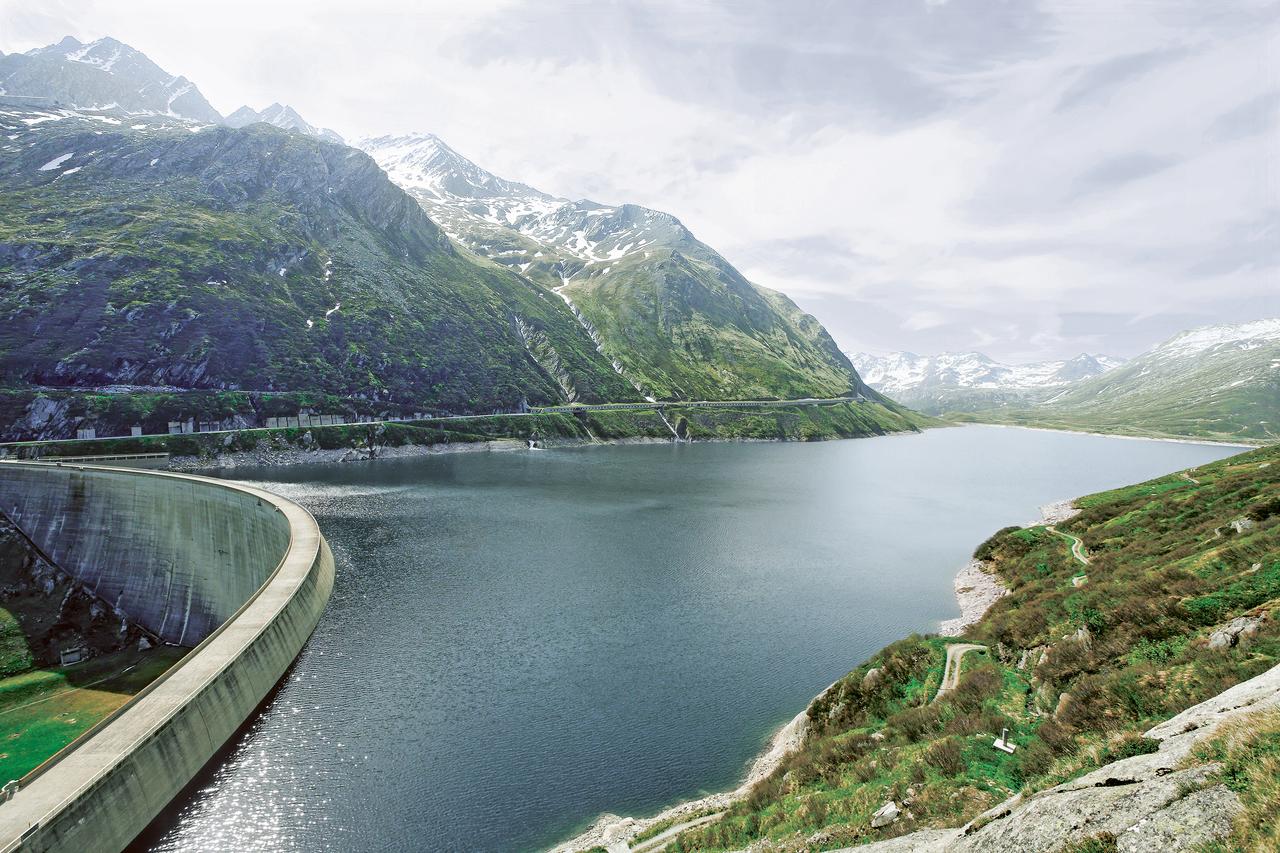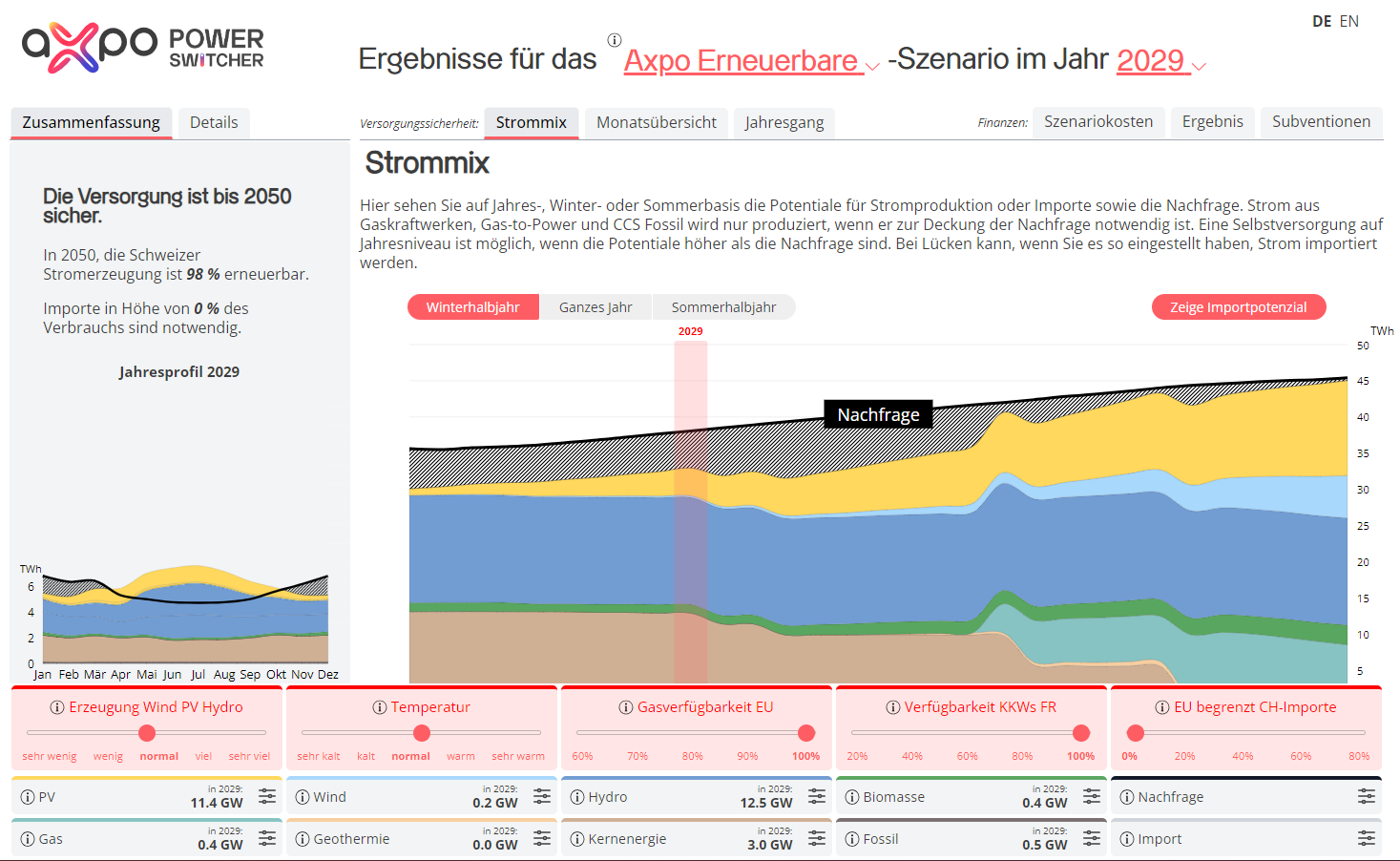28.11.2024 | Growing business
French vegetable farmers rely on Axpo’s expertise
Many French vegetable growers rely on heated greenhouses to cultivate their crops. But strongly fluctuating energy costs have become a major challenge for them. Axpo can offer these farmers long-term fixed-price contracts, making planning much easier and opening up new business opportunities.
In France, vegetable growers cultivate a total of 1,130 hectares under glass in heated greenhouses, where they mainly grow tomatoes and cucumbers. This area is around six times the size of the Principality of Monaco. Every year, about 400 kilowatt hours (kWh) of heat are required for each cubic metre. This energy is generated by boilers or combined heat and power (CHP) plants, largely fired by natural gas.
CHP technology enables the simultaneous production of electricity and heat, which can reduce fuel costs by up to 20 per cent compared with separate generation. In addition, the carbon dioxide (CO2) produced during electricity generation can be recovered and used as fertiliser, resulting in additional cost savings. CHP systems are therefore particularly suitable for energy-intensive greenhouse cultivation, and are currently used in around 70 per cent of French greenhouses.
Fixed energy prices improve competitiveness
The French government has been financially supporting CHP technology for many years. However, these subsidies will be completely phased out by 2030, leaving farmers fully exposed to gas price volatility. Since 2020, natural gas prices have ranged from 30 to 150 euros per megawatt hour. The energy costs for producing one kilogramme of tomatoes have therefore fluctuated between 70 cents and 3.50 euros. This makes planning extremely difficult for farmers, eroding their competitiveness and ultimately jeopardising their very existence.
Based on their knowledge of the market and risk management skills, Axpo's specialists can offer long-term fixed-price contracts for energy procurement, making planning for these farmers much more straightforward. Axpo works closely with them to improve the efficiency of their heat generation mix. Once long-term price hedging has been agreed, Axpo manages the so-called spark spread, the difference between the cost of natural gas and the revenue from the electricity generated, on a weekly basis. Knowing market prices and the demand for heat and CO2 means that operation of the CHP plants can be optimised. This concept also encourages the development of cost-effective energy solutions and opens up new revenue opportunities for farmers. Planning security is also an important prerequisite for vegetable growers looking to invest in their CHP plants and thus increase their efficiency and competitiveness.
Axpo as a strong risk management partner
All of this makes Axpo an important and reliable partner for vegetable growers. To help protect them against volatile energy prices, Axpo also maintains strategic alliances with banks and industrial partners such as the construction company Eiffage. Gilles Marguerat, Head of Cogeneration at Eiffage Énergie Systèmes, says: “Of all the energy companies we’ve been in contact with, only Axpo has taken the time to address the challenges of French vegetable growers and their cogeneration plants. Together, we were able to develop solutions that provide a long-term future for vegetable growers who rely on greenhouses.”
By October 2024, Axpo had concluded energy contracts with more than 30 greenhouse farmers for terms of up to 10 years. Anne-Claire Goyer from Le Potager de Jade, which cultivates 30 hectares, explains the advantages of this approach: “Partnering with Axpo has changed our business. With fixed energy prices, we can plan our production without fear of fluctuations and are competitive with our heat production costs.”
Energy solutions for tomorrow
Axpo's strategic focus on risk management and hedging is transforming the energy management of French vegetable growers who rely on greenhouses. By ensuring stable energy prices, Axpo mitigates the economic impact of subsidy cuts and promotes long-term financial stability and independence. Looking to the future, Axpo is well positioned to make even greater use of its international expertise in innovative technologies such as hydrogen and biogas for customers in France. In particular, Axpo will work with vegetable growers to find solutions to integrate new energy sources with the aim of replacing natural gas in the long term. This collaborative and forward-looking approach promises to further strengthen economic stability and environmental sustainability in the agricultural sector.




.jpg)





